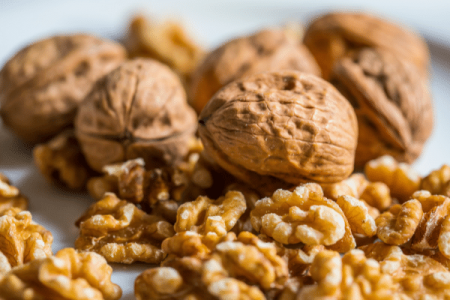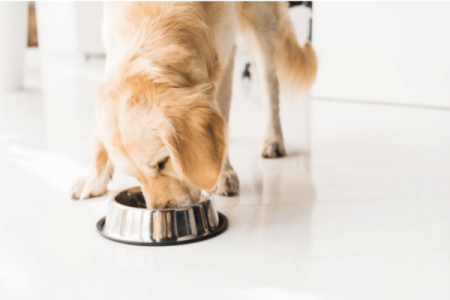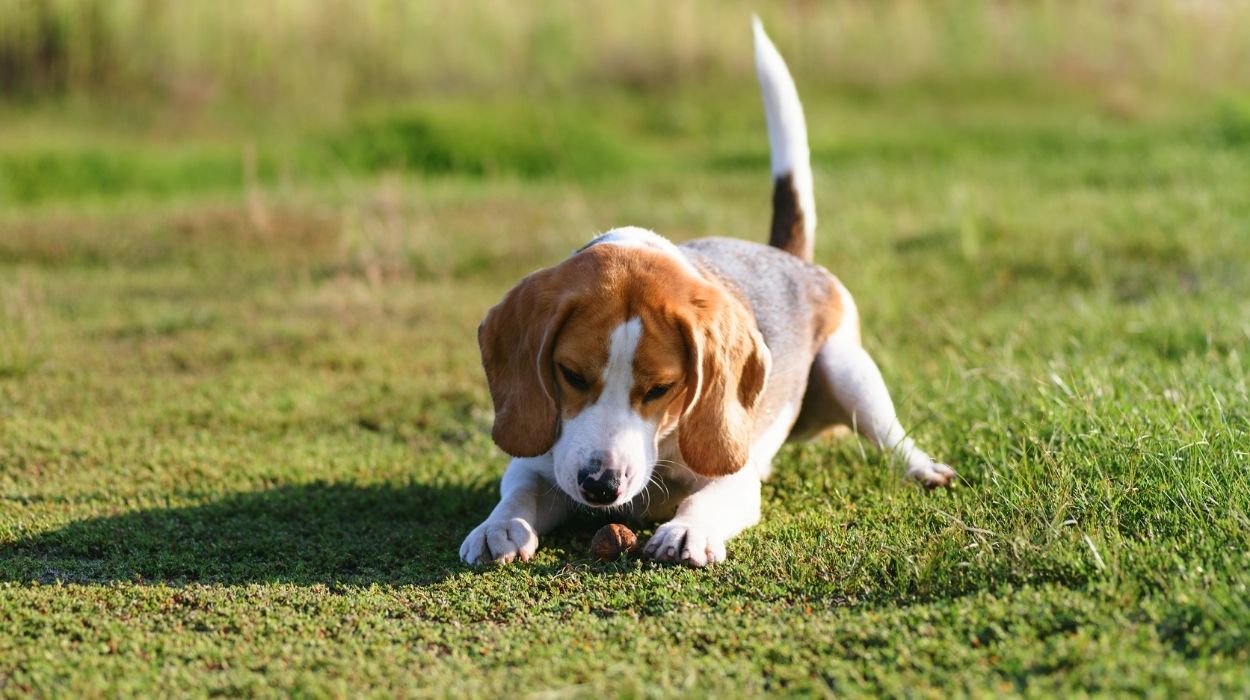You must have heard how toxic nuts like macadamia are for your four-legged canine pals. But what about the case of walnuts and their shells?
Contrary to popular opinion, walnuts and walnut shells are not safe for dogs as they are for humans. Once contaminated by fungi, they can even poison your dog.
If you’re wondering whether you should feed walnut and their shells to your dog, this article is the perfect place. We’ll explore the risks and side effects your dog might face after eating walnuts and walnut shells.
Can Dogs Eat Walnuts?

Walnuts are popularly known as storehouses of vitamins, antioxidants, fatty acids, and minerals. However, these nutrients make walnuts beneficial for humans and not dogs.
The risks attached to consuming walnuts outweigh the benefits. This high-fat dry fruit can instantly upset your doggo’s tummy and lead to vomiting and diarrhea.
If your dog is extra sensitive, he might suffer from severe conditions like pancreatitis and/or gastroenteritis after eating walnuts. Thus, you must refrain from giving walnuts to your dog and consult your vet if you still wish to do so.
Can Dogs Eat Walnut Shells?

No! Absolutely not. Do not let your dog consume walnut shells. Once inside his system, the walnut shell can lead to severe troubles.
Let us put it this way; eating walnuts is as dangerous as drinking and driving for your dog. But eating the walnut shells could be as fatal as driving blindfolded on a busy highway. Fatal complications are guaranteed.
Consuming walnut shells disrupt your dog’s digestive system and lead to gastrointestinal problems at the very least.
But what’s more troublesome is that walnut shells pose a potential choking hazard. Moreover, they might cause intestinal blockage, particularly in small breed dogs.
Therefore, you must keep the walnut shells away from your dog at all times.
Warning: Walnut shells are more prone to get contaminated by toxic fungi, given that they have a zero layer of protection.
Is It Safe For Dogs To Eat Black Walnuts?

Unlike the commonly available English walnuts, Black walnuts have more rigid shells and a stronger flavor. Native to the United States, Black walnuts are toxic to dogs.
Clinical research has proven that eating black walnuts causes serious complications in dogs.
So, next time while you’re walking in areas where black walnut trees are prevalent, watch your dog real close. They may eat off these toxic walnuts fallen on the ground.
Fallen walnuts are more prone to develop mold that can make your dog very sick. Such moldy walnuts develop a toxin called penitent A that causes liver damage, seizures, fever, and muscle tremors in dogs.
What Are The Side Effects Of Walnuts And Shells In Dogs?

The comprehensive research conducted by Chinese scholars reveals bothering facts about the bacterial community present in walnuts and their shells.
The study disclosed that many microorganisms inevitably infect the walnut surface during harvesting, storage, transportation, and sales.
These microorganisms include food-borne pathogens like Aspergillus, Salmonella, Listeria monocytogenes, Shigella, and Escherichia coli. These are highly toxic pathogens that can lead to food-borne diseases and even death in animals.
Are Walnuts Toxic For Dogs?
Yes. When the walnuts get wet, old, and moldy, they develop tremorgenic mycotoxin. It is a harmful agent produced by the fungi present on the surface and shells of walnuts.
If unfortunately, your dog consumes an infected walnut, he is most likely to contract moldy walnut toxicosis. It adversely affects your dog’s kidneys, brain, liver, and nervous system in a short period.
The following symptoms become evident in dogs after consuming walnuts due to mycotoxin:
-
Elevated body temperature (hyperthermia)
Liver damage
Vomiting
Panting
Excess salivation
Dehydration
Restlessness
Muscle tremors
Seizures
Loss of appetite
Weakness
Increased heart rates
Death in severe cases
What Should You Do When Dogs Eat Walnuts And Walnut Shells?
Stay calm! One single walnut will not be fatal for your dog. He would not get sick due to it. Still, you could watch him for a few hours to be sure.
If your dog’s health deteriorates after eating a single (or handful) of walnuts, you must immediately contact your vet. In cases of severe poisoning, your dog might experience tremors, seizures, and difficulty staying put.
Moreover, a dog poisoned with tremorgenic mycotoxins would probably vomit at the initial stages. Do not worry, as vomiting helps in reducing the mycotoxins floating in your dog’s system.
If moldy walnuts are the culprit behind your dog’s illness, your vet will prescribe him activated charcoal for absorbing mycotoxins. Moreover, the vet will recommend a dose of diazepam (Valium) to control your dog’s seizures.
Apart from walnuts, if your dog has eaten walnut shells, they would pass through his system without damage. This is the case oftentimes.
However, you must monitor your pup for any gastrointestinal problems and/or intestinal blockage symptoms. You must call the veterinarian the moment you are worried.
Author’s Note: After consuming walnut shells, smaller dogs are at more risk of experiencing impaction. It is a disorder wherein the feces are wedged together in your dog’s lower colon. However, the vet would examine your dog for impaction regardless of his size.
FAQs
Q. Can your dog consume washed walnuts?
No. Dogs should not eat walnuts even if they are washed. You might be able to remove most of the mold visible to the naked eye. However, the fungi have filaments that can still grow deep below the walnut’s surface. Hence persists the danger of mycotoxins.
Q. Can your dog consume cooked walnuts?
No. Dogs should not consume cooked walnuts. Unlike bacteria, mycotoxins don’t get killed during the cooking process because they are not living organisms but chemical by-products.
Conclusion
So, after considering all the red flags, we must conclude that dogs should not eat walnuts and walnut shells. While excessive consumption of regular English walnuts can lead to digestive issues, black walnuts are toxic for your pup.
There are many better alternatives to walnuts for increasing the fat content of your dog’s meal. You can simply go for cashews, peanuts, and pecans, among other nuts that are considered healthy for dogs.
Do you wish to share the time when your dog ate walnuts? Did this article help you resolve your confusion regarding feeding walnuts and walnut shells to your dog? Feel free to drop down your thoughts in the comments!

Dr. Aram Baker has been with Santa Clarita Animal Hospital since 1995 and his special interests include behaviour medicine and dermatology. He graduated from the Cleveland Humanities Magnet Program in Reseda, CA and attended California State University at Northridge where he received a Bachelor’s degree in biology. He went on to pursue his Doctorate in Veterinary Medicine at the University of California at Davis. He also spent time in the zoological medicine department at U.C. Davis during his Junior and Senior years. He is dedicated to caring for all pets big or small, young or old with compassion, patience, kindness, and love.
